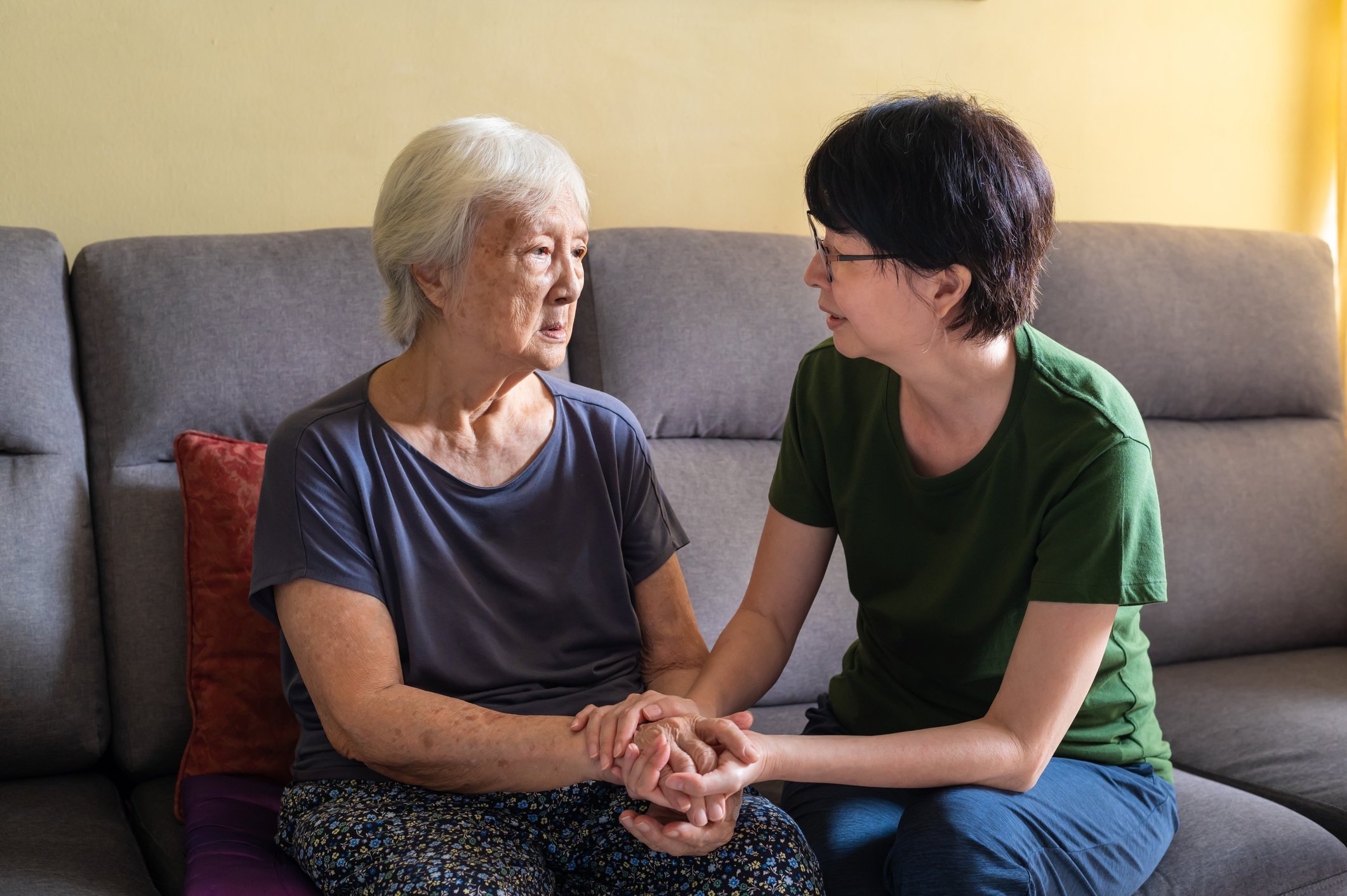Updated June 2024
Mediators who focus on resolving disputes involving older adults and their families, friends, and caregivers may find themselves working with clients from diverse backgrounds. That presents unique challenges and requires specific skills.
Being culturally competent is key to success. But what exactly does that mean? And how can mediators create a respectful and inclusive process for everyone involved?
In this post, we explore the significance of cultural diversity in intergenerational mediation, highlighting how mediators can navigate and leverage cultural differences to resolve conflicts effectively.
TABLE OF CONTENTS
- The Importance of Recognizing Cultural Differences
- Challenges of Cultural Differences in Intergenerational Mediation
- Cultural Competence in Mediation: Key Skills
- Strategies for Navigating Cultural Diversity
THE IMPORTANCE OF RECOGNIZING CULTURAL DIFFERENCES
Recognizing cultural differences is critically important, as it significantly influences the effectiveness and fairness of the mediation process.
For example, in some cultures, direct confrontation or openly discussing certain topics might be considered disrespectful, especially toward elders. That can affect how the parties in an intergenerational mediation express concerns or dissatisfaction.
The concept of respect for elders also varies across cultures, with some placing a high emphasis on filial piety and deference to the wisdom of the older generation. This can impact the willingness of adult children to voice disagreements or present their perspectives in a way that seems to challenge their parents’ authority.
In disputes involving different generations, cultural differences can be particularly pronounced due to the evolving nature of cultural identity and expression. Conflicts may arise when traditional expectations clash with individual desires or when generational changes in cultural attitudes occur.
By recognizing cultural differences, mediators can better understand the motivations, behaviours, and concerns of the parties involved. They can facilitate clearer, more effective dialogue and guide the discussion toward solutions that are not only practical, but also culturally appropriate. This is key to ensuring that the outcome of mediation is perceived as fair and equitable by all parties.

Cultural differences add a layer of complexity to intergenerational disputes
CHALLENGES OF CULTURAL DIFFERENCES IN INTERGENERATIONAL MEDIATION
Cultural differences affect how conflicts are perceived, managed, and resolved. Mediation techniques for diverse cultures must address challenges like:
Miscommunications and Misunderstandings
Individualistic cultures like those of Canada and Western Europe value direct communication. However, collectivist cultures like China and Japan prefer indirect communication—when messages are implied rather than explicitly stated, especially in a context that involves respect for elders.
For instance, an elderly parent from a collectivist culture might hint at needing more attention or assistance from their adult children without directly asking for it. The adult children, especially if raised in a more direct communication culture, might miss these cues entirely, leading to misunderstandings about the parent’s needs and feelings of neglect.
Silence can also be misinterpreted. Westerners tend to view silence as implying disagreement. But to people from some other cultures, silence signifies respect or careful consideration.
Imagine a mediation between a Chinese immigrant father and his Canadian-born son. The son might be more direct in expressing his frustrations, while the father remains silent out of respect. The mediator, unaware of these cultural cues, might pressure the father to speak up, leading to feelings of disrespect and hindering open communication.
By recognizing these potential misunderstandings, a culturally competent mediator can adapt their approach. They can explain communication styles to each party, encourage indirect expressions from the father, and focus on finding common ground despite the cultural differences.

Communication styles can vary across cultures and across generations
Varying Conflict Resolution Expectations
Some cultures view open conflict and discussion of agreements as healthy and necessary for resolution. Others view maintaining harmony and avoiding direct conflict as paramount. If an elderly parent avoids discussing a problem directly to maintain harmony, and their adult child, used to a more confrontational style, pushes for direct discussion, both parties can feel misunderstood and frustrated.
Other differences that crop up in intergenerational conflict resolution include:
Individualism vs collectivism: Individualistic cultures emphasize personal achievement and autonomy, leading to conflict resolution approaches that prioritize individual rights and self-expression. In contrast, collectivist cultures value group harmony and cohesion, with conflict resolution strategies often focusing on compromise, consensus, and the well-being of the group.
Third-party involvement: In some cultures, individuals might prefer to solve conflicts themselves or with close family involvement. Mediators might need to tread carefully and avoid imposing themselves unnecessarily. In other cultures, people may readily accept or even expect mediators to take more of an authoritative approach.
Hierarchy and respect: In some cultures, respect for elders, authority figures, or social status influences communication and decision making. In others, equality is key. Mediators should avoid making assumptions about power dynamics and ensure all voices are heard respectfully.
CULTURAL COMPETENCE IN MEDIATION: KEY SKILLS
A mediator’s goal is to ensure the process is respectful, inclusive, and effective for all parties involved. For disputes involving different cultures and generations, that requires certain key skills.
Self-awareness: You need to recognize your own cultural background and potential biases so you can avoid imposing them on the mediation process.
Knowledge of other cultures: Having a broad understanding of the cultural norms, values, communication styles, and conflict resolution practices of the parties involved in mediation can help you anticipate potential misunderstandings.
Active listening and observation: You must be able to listen attentively and observe non-verbal cues. That includes being sensitive to what might not be said directly, a skill that is particularly important in cultures where indirect communication is the norm.
Conflict resolution: Some cultures might prefer direct confrontation, while others favour a more indirect approach. You should also be aware of cultural values surrounding apologies, forgiveness, and power dynamics within families or communities.
STRATEGIES FOR NAVIGATING CULTURAL DIVERSITY
The first step is researching the cultural backgrounds of the parties involved. This will help you understand the potential communication styles, values, and conflict resolution expectations. But avoid stereotyping—you shouldn’t assume that all people from a particular culture will have the same mindsets and expectations.
In some cultures, opening up to strangers about personal matters is a no-no. You may have more success by having longer one-on-one pre-mediation sessions to establish trust and demonstrate your impartiality. Explain what happens in mediation and let the parties know that others in similar situations have gone through the process and had a good outcome.
Be prepared to adjust the structure and pace of the mediation. Some cultures might require more time for reflection and indirect communication, for example. Consider having more informal discussions, taking breaks for consultation with family or community members, or bringing in respected elders.
In some cases, it might be beneficial to bring in a cultural translator or mediator trained in specific cultural practices.
THE ROLE OF EDUCATION IN CULTIVATING SKILLED MEDIATORS
Intergenerational mediation and conflict resolution training can equip you with the knowledge, skills, and awareness necessary to navigate cultural differences effectively.
As a student in the Intergenerational Mediation certificate from Kompass, you’ll explore the issues that cause friction between older adults and their families and get hands-on practice mediating multi-party disputes. Through simulations and role plays, you’ll apply your learning in a controlled environment and get prepared for real-world challenges.
The 12-week online certificate is accredited by the Ontario Association for Family Mediation and meets the training requirements for the AccIM designation.
Click below for further details and chat live with an admissions advisor. We’re here to help!








